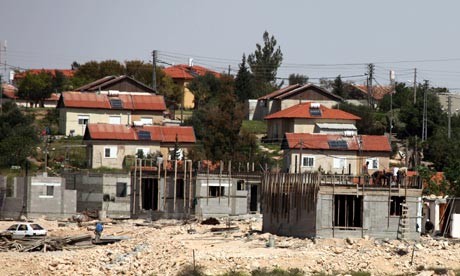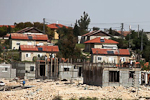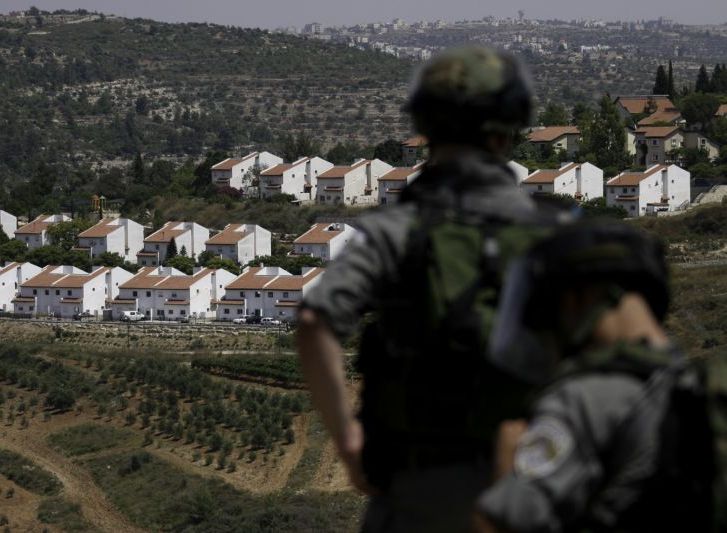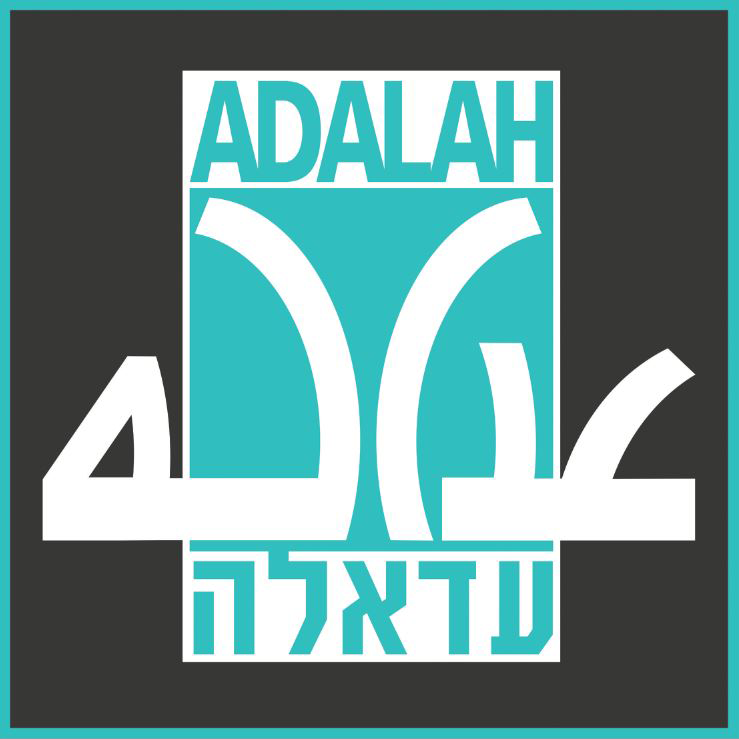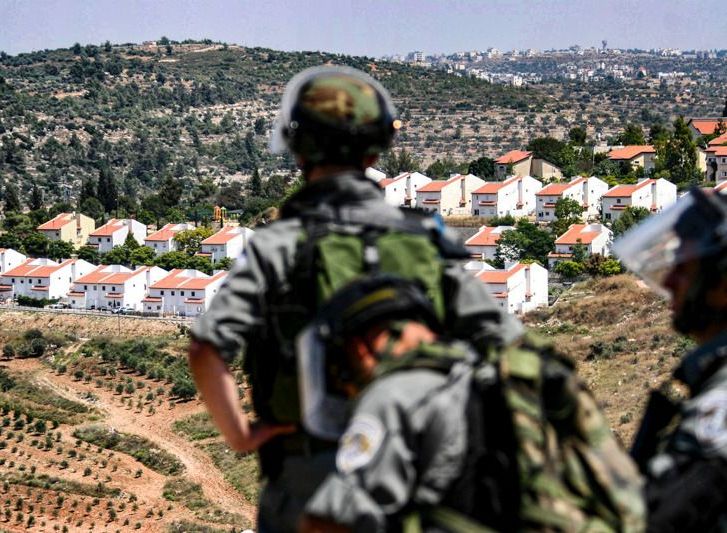Are Israeli settlers poised to return to northern West Bank?
As the International Criminal Court (ICC) advances with its probe of Israeli settlement activities, Israeli lawmakers are now debating two new laws that would give a dramatic boost to the expansion of West Bank settlements and would – for all intents and purposes – enable Israeli annexation of more occupied territory.
The first bill would allow settlers to return to settlements in the northern West Bank from which they were evacuated in 2005 as part of Ariel Sharon’s “disengagement plan” – a move that stands in violation of international law and amounts to Israeli annexation of these parts of the West Bank.
Adalah – The Legal Center for Arab Minority Rights in Israel sent a letter on 13 December 2018 to members of the Ministerial Committee on Legislation and Israeli Attorney General Avichai Mandelblit demanding they reject the proposed amendment.
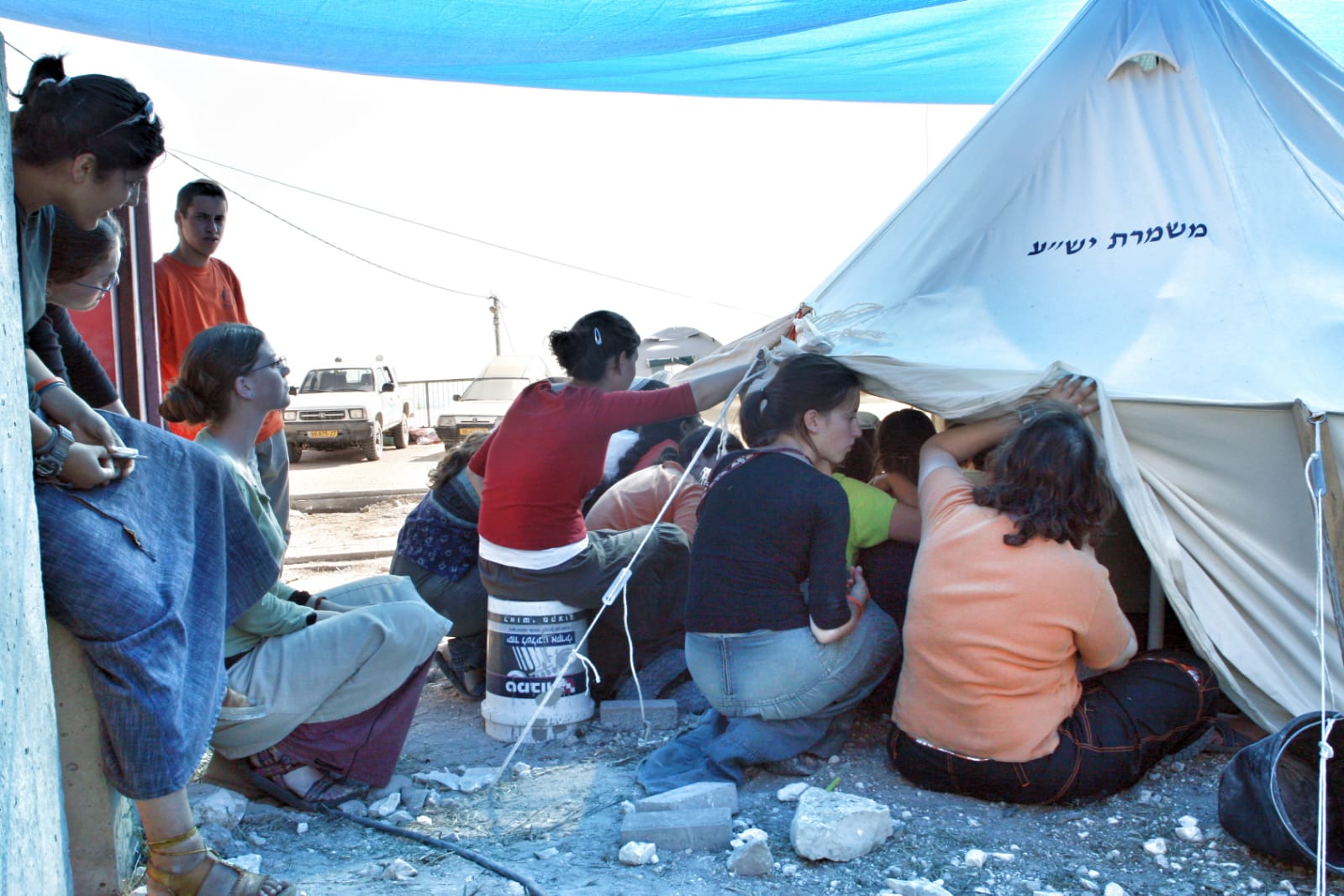
Young Israeli settlers in the northern West Bank settlement of Homesh gather during the evacuation of Israeli settlements from Gaza and sections of the West Bank, in August 2005. (Photo by Mati Milstein)
The amendment to the 2005 settlement disengagement law was nevertheless approved by the Knesset's Ministerial Committee on Sunday, 16 December 2018 and is now being pushed through the legislative process.
The proposed amendment would revoke provisions of Section 22 of the Disengagement Plan Law (2005), thereby enabling the re-entry of settlers into the northern West Bank and the re-establishment of the settlements evacuated under the law.
Adalah argued in its letter that the proposed amendment violates international humanitarian law (IHL) that applies to the occupied West Bank and stressed that, "the proposed law is also tantamount to the annexation of territories since it attempts to replace the norms of IHL and to apply Israeli law to the territories in question." It is, therefore, absolutely forbidden to implement the proposed law that would return Israeli settlers to the northern West Bank.
The Israeli Supreme Court also ruled in 2005 that, "the law, jurisdiction, and administration of the State of Israel do not apply in these areas."
Further, the transfer of the civilian population of an occupying power to an occupied territory is a war crime under the Rome Statute establishing the ICC. Earlier this month, ICC Chief Prosecutor Fatou Bensouda announced that her office had made "significant progress" with its preliminary examination of Israel's settlement activities in the West Bank.
Second proposed law would legalize 66 settlement outposts
At the same time, Israeli lawmakers are pushing new legislation that would retroactively legalize some 66 illegal settlement outposts in the West Bank.
This new bill is informally known as the second Settlement Regularization Law, due to its similarity to the legislation passed in February 2017, which allows Israel to expropriate private Palestinian land in the West Bank and to “regularize” or “legalize” the Israeli settlements built on it – under Israeli domestic law. Adalah, together with partners, including 17 Palestinian local councils in the West Bank, is challenging this law before the Israeli Supreme Court.
Adalah issued a letter to Israeli Prime Minister Benjamin Netanyahu and the AG on 17 December 2018 demanding they act to block this bill.
This bill is also tantamount to the annexation of occupied territories, as it attempts to replace the norms of IHL with Israeli domestic law to allow the dispossession of Palestinian land and to render their rights redundant.
If the bill passes, the concerned settlements will receive municipal services and will be connected to the water and electricity grid. Government ministries will consider these settlements as "recognized for all intents and purposes, including budgeting, infrastructure assistance, and the construction of public buildings and structures required for the proper living of their residents."
Both letters were prepared and issued by Adalah Attorney Suhad Bishara.
CLICK HERE to learn more about the Settlements Regularization Law
Related Press Releases:
- Even Israeli AG says Settlement Regularization Law should be repealed
- Israeli Supreme Court: State must justify why it won't repeal unconstitutional Settlement Law
- Adalah: AG must retract legal opinion giving green light to appropriation of private Palestinian land
- Adalah opposes bill designed to promote de facto annexation of West Bank lands














